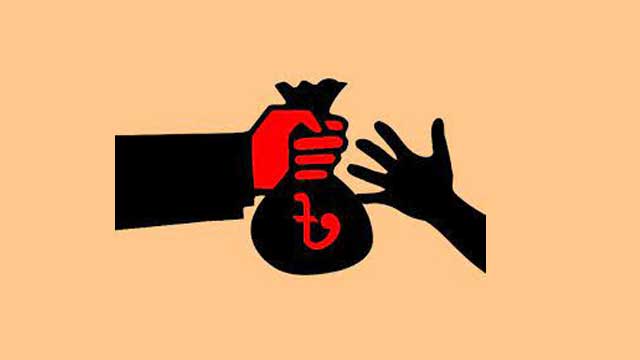The Bangladesh Bank on Monday issued a fresh policy on rescheduling classified loans, allowing defaulters to reschedule their loans for more than three times with significantly low amounts of down payment.
The central bank gave another big break to the defaulters despite a spate of criticisms from different corners against providing such facilities one after another.
Under the new policy, defaulters would get scope for rescheduling their loans up to 29 years.
The amount of down payment, a precondition for rescheduling defaulted loans, has been reduced sharply to as low as 2.5 per cent from 10 per cent of the outstanding loan amount.
Even if a loan has already been rescheduled for four or more terms, banks are allowed to reschedule the same loan for another term and the scope will remain valid till December 2023.
Earlier, banks were allowed to reschedule loans for three times under the central bank’s previous two circulars under the BB’s general loan rescheduling guidelines issued in 2012 and 2013. Apart from the guidelines issued in 2012 and 2013, the central bank allowed banks to issue general rescheduling scope to the borrowers following the Covid outbreak and the facility would remain valid till December 2022.
Before the Covid outbreak, the BB amid a record surge in the amount of defaulted loans allowed a big break to loan defaulters as it empowered banks to reschedule defaulted loans for 10 years against only 2 per cent down payment.
The policy drew a huge criticism against the central bank as well as against the government and different quarters termed the move a politically-influenced one and sweeping the problem under the carpet.
The previous big break was awarded for a limited time, but the revised guidelines on loan rescheduling can be used by banks on a regular basis.
Under the fresh guidelines issued on Monday on loan rescheduling, loan defaulters are also awarded with relaxed and extended repayment tenure to repay their loans once those are rescheduled.
In 2012, the central bank introduced rescheduling scope for loan defaulters where the banks were allowed to reschedule loans for up to three times.
Initially in 2012, borrowers were allowed highest 24 months to settle their rescheduled loans.
The BB later in 2013 extended the repayment period for borrowers of the rescheduled loans to up to 36 months.
Under the new circular on general loan rescheduling, borrowers would get up to eight years to repay rescheduled term loans amounting Tk 500 crore and above.
For rescheduling of term loans ranging between Tk 100 and Tk 500 crore, borrowers would get up to seven years.
And for the term loan less than Tk 100 crore, the repayment tenure would be highest six years.
For the demand loans, the repayment tenure would be highest five years for any amount less than Tk 50 crore, the tenure would be 6 years for any amount between Tk 50 crore and less than Tk 300 crore and the tenure could be seven years for any amount equivalent to Tk 300 crore or above.
The tenure would be applicable to the rescheduling of loans for the first and the second terms with grace period.
For the rescheduling of loans for the third and the fourth times, the repayment tenure must be reduced by one year respectively.
In terms of receiving down payment from borrowers, the central bank in its revised guidelines allowed banks to reschedule loans upon receiving much lower amount of down payment.
In case of rescheduling any fix-term loan amounting Tk 500 crore or above, banks are allowed to reschedule loans upon receiving 5 per cent of the overdue loan amount or 2.5 per cent of the outstanding loans, whichever is lower.
Under the BB’s previous guidelines, banks were supposed to receive at least 15 per cent of the overdue loan amount or 10 per cent of the outstanding loan amount, whichever was lower, before considering any rescheduling proposal.
Even after issuing a series of facilities to the loan defaulters, the amount of defaulted loans in the country’s banking sector increased rapidly.
The amount stood at Tk 1.13 lakh crore in March.
It had dropped to around Tk 88,000 crore in 2021 after reaching a record high above Tk 1.16 lakh crore in 2019.
According to a Transparency International Bangladesh study, the amount of defaulted loans in the country’s banking sector grew by 417 per cent in the 2009-2019 period.





